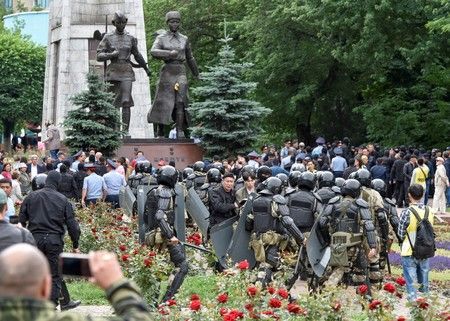
Police officers block opposition supporters during a protest against presidential election

Police officers block opposition supporters during a protest against presidential election
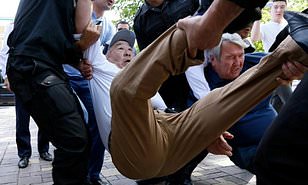
In a country tightly run by one man for three decades, even small protests are a rarity.
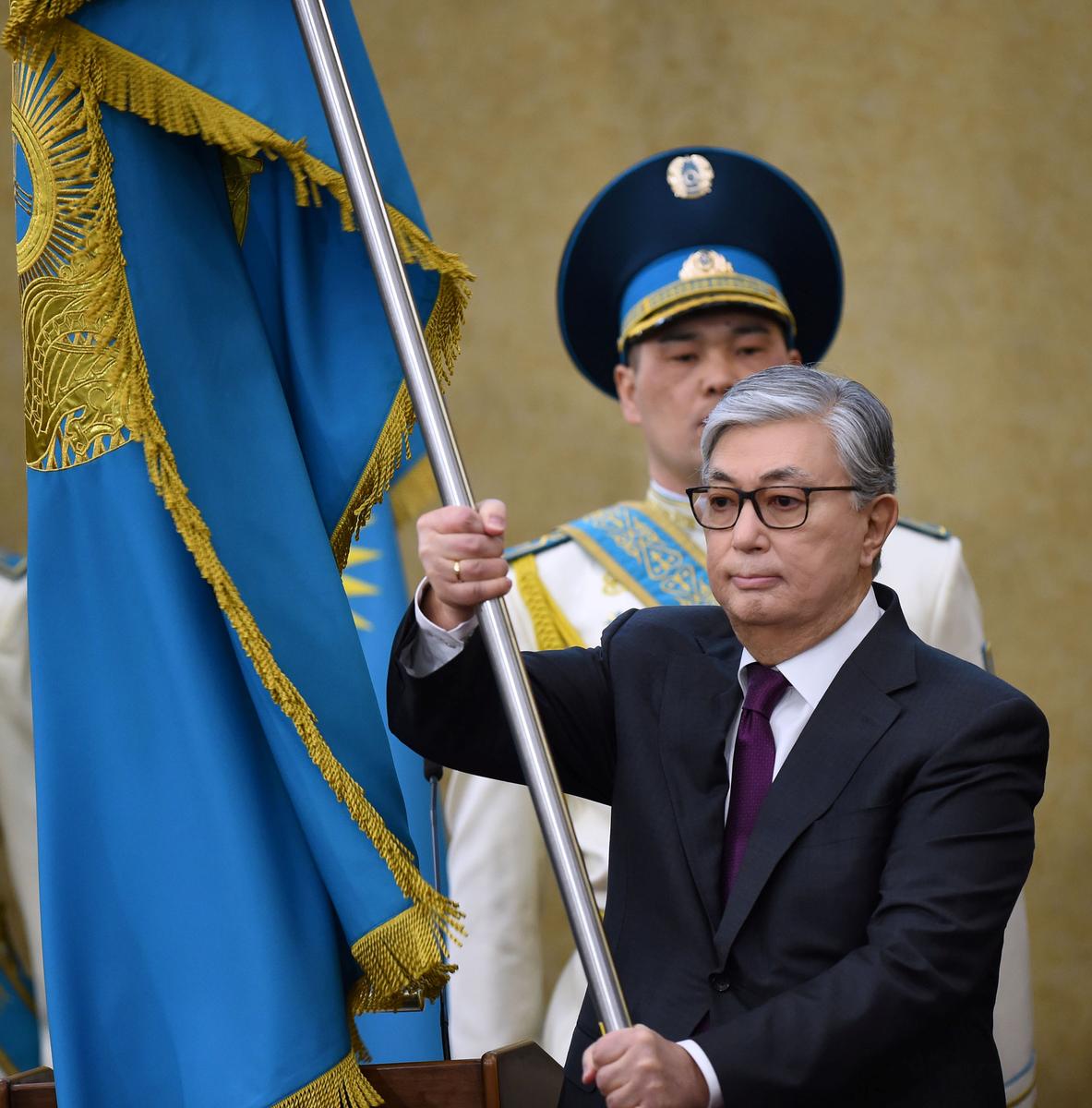
In the light of the shortcomings reported by the OSCE/ODIHR Mission, we expect Kazakhstan to address these violations, as well as the controlled legal and political electoral framework, as they run counter to the country's OSCE commitments and international obligations.
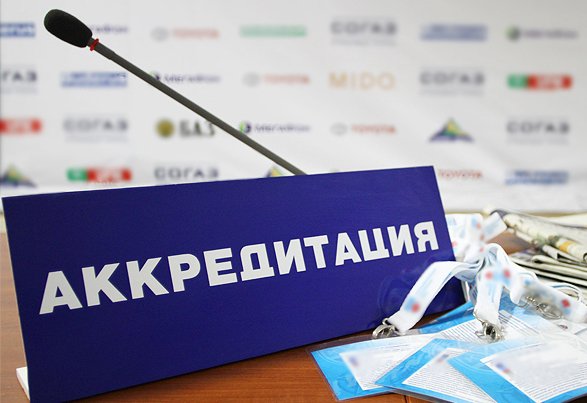
The Kazakh state is increasingly bringing the work of independent journalists under control. A new media law places further restrictions on journalistic freedom.
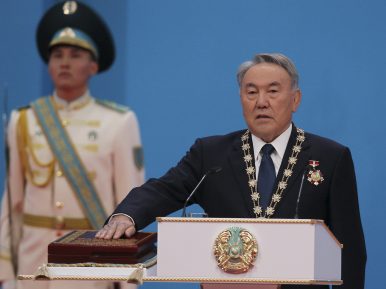
Kazakhstan’s first president resigned, but he remains fundamentally intertwined with the state.
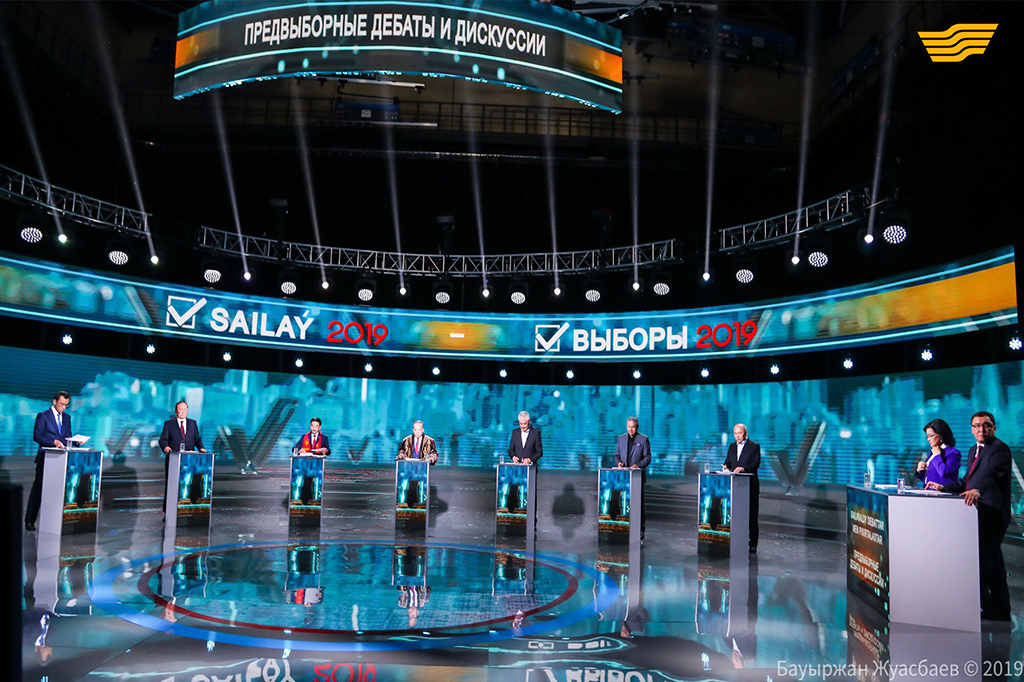
Kazakhstan's pretend presidential election contest would not have been complete without a pretend debate among the pretend candidates.
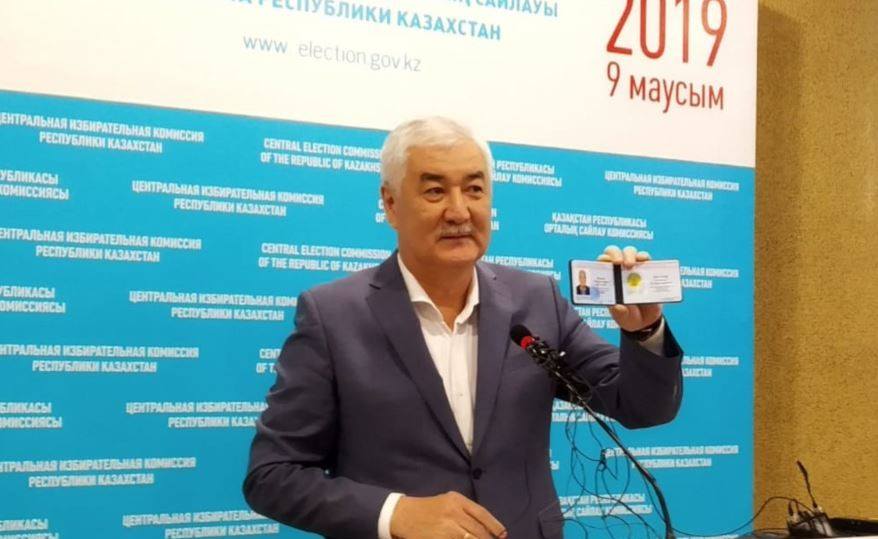
Amirzhan Kosanov, the lone opposition candidate in Kazakhstan’s June 9 presidential election, took the opportunity of Wednesday’s televised debate to demand democratic reforms in the Central Asian nation.

A prominent opposition politician and journalist on Monday won his bid to challenge a trusted ally of strongman Nursultan Nazarbayev in Kazakhstan’s presidential polls next month.
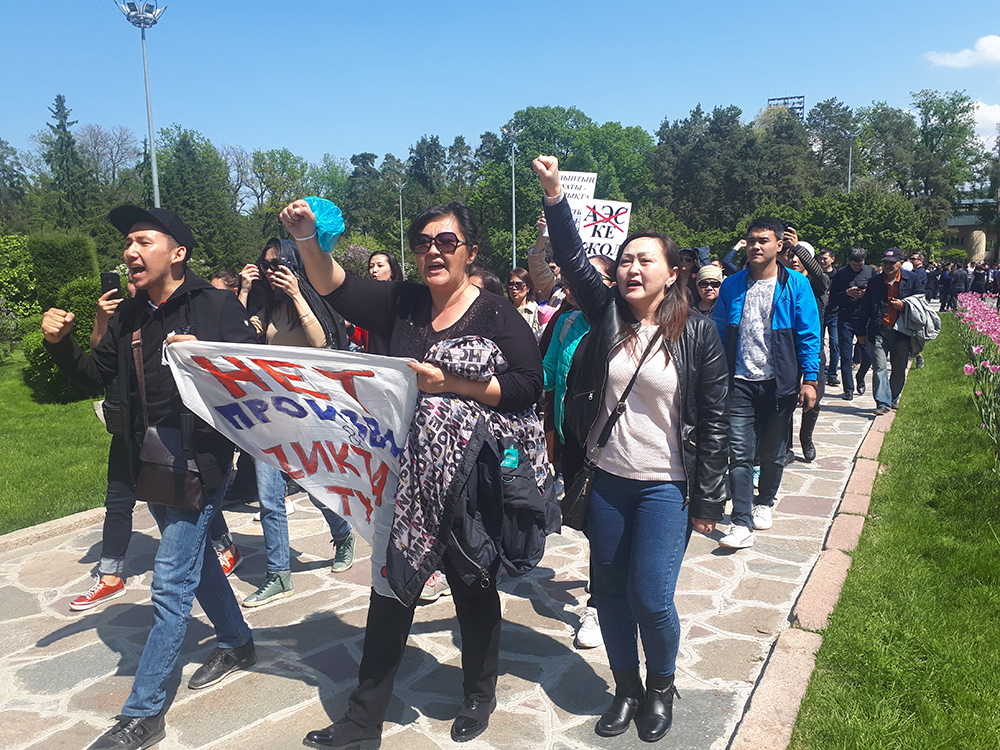
Frustrations have been bolstered by perceptions that crucial national decisions are being made without the general population being consulted.
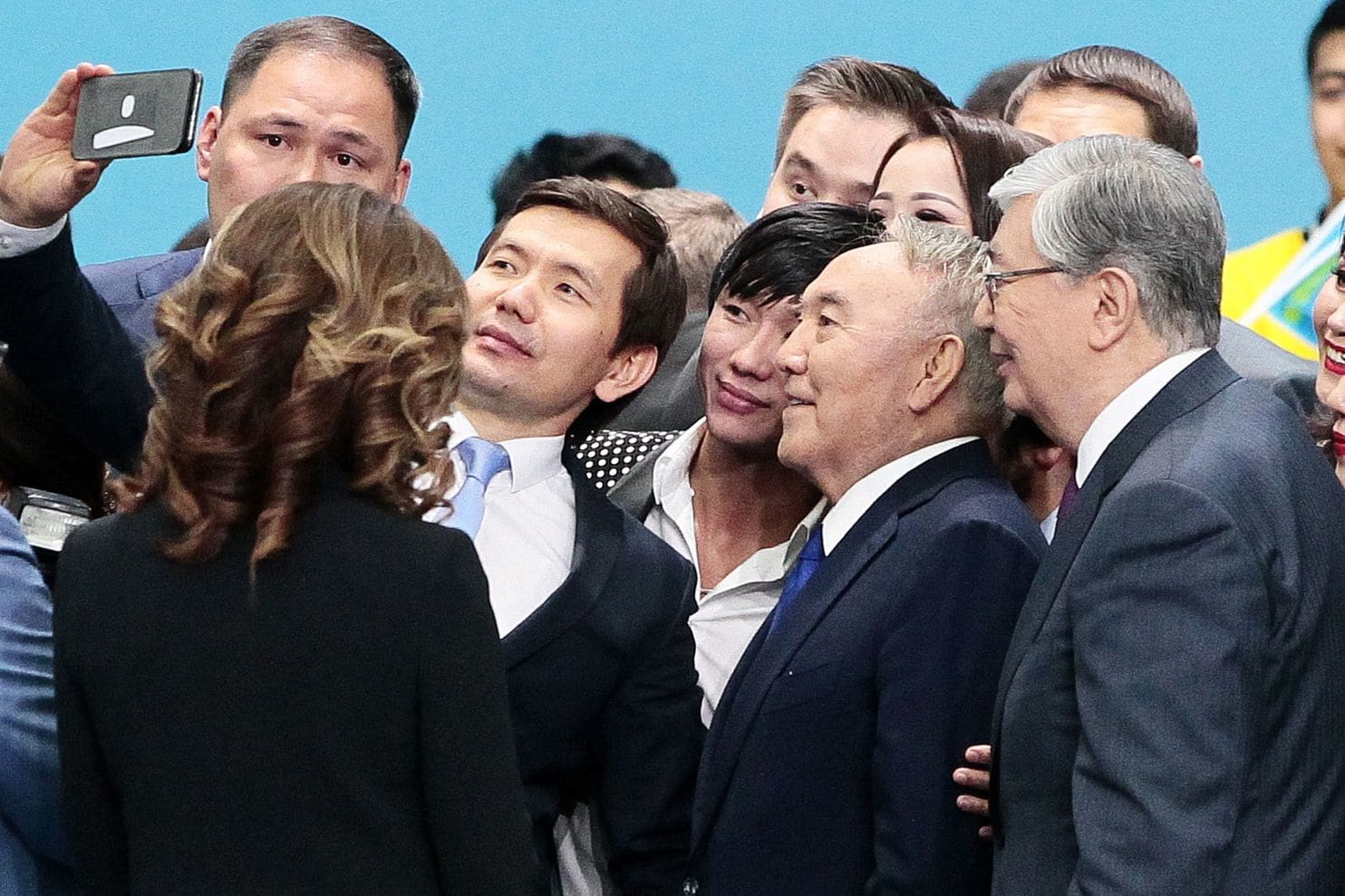
Nursultan Nazarbayev, the only leader Kazakhstan had known since the country gained independence nearly 30 years ago, resigned March 19. During his televised announcement, the longtime autocrat noted his government’s shortcomings in addressing economic problems and expressed desire for a new generation of leadership.


